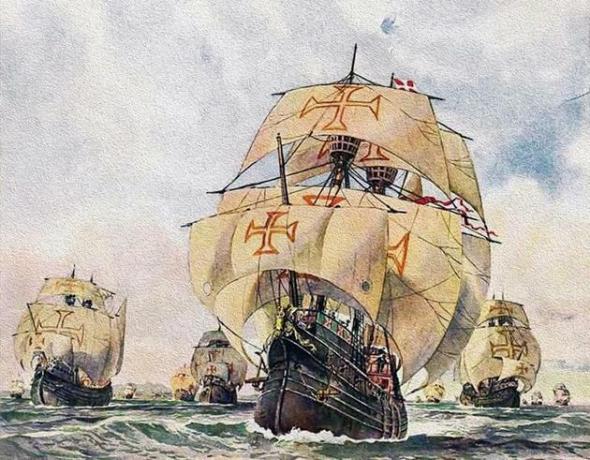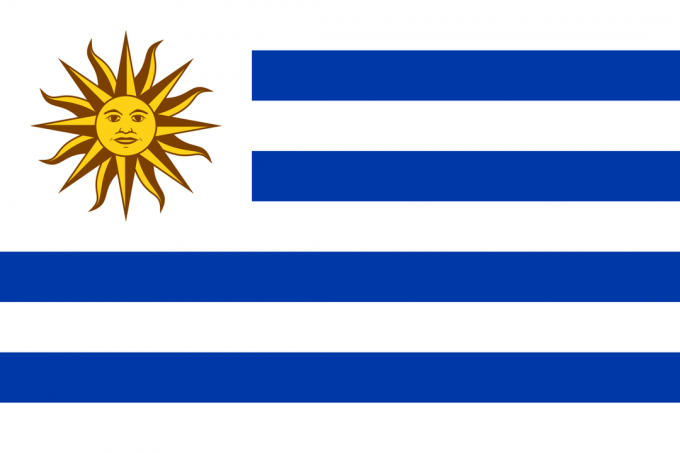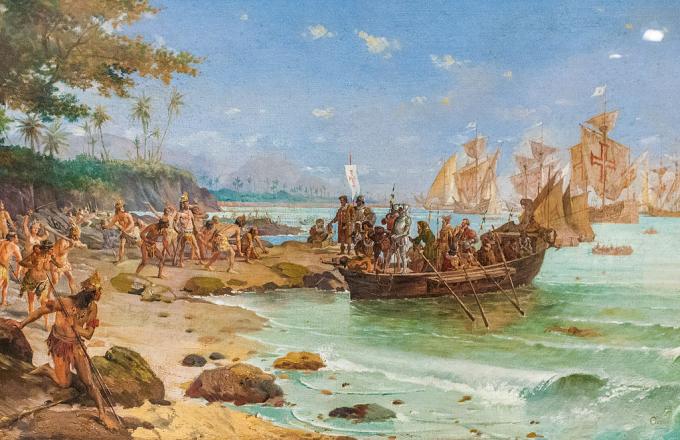At portuguese navigations they began in the 15th century with the conquest of Ceuta and extended throughout the 16th century.
This venture was responsible for redrawing the map of the world known so far.
Causes
Several reasons led the Portuguese to embark on this adventure.
- need to open new trade routes;
- expand the Christian faith;
- conquer lands and titles for the nobility.
The fact that they were free of internal warfare and organized as a national state was also an advantage for Portugal to be a pioneer in navigation.

The Portuguese country still had a number of economic issues to resolve. The Portuguese crown was without metals to mint coins, it suffered from the insufficiency of agricultural products, labor and there was a need to expand markets.
Portugal had a geographical advantage that also contributed to performance at sea due to the easy access to Africa from the Atlantic Ocean.
Therefore, part of the nobility and the bourgeoisie bet on conquest of routes by sea to reach these lands and markets.
Expansion
The first great Portuguese achievement was the city of Ceuta, which took place in 1415. Ceuta was a meeting point for several Arab caravans.
The Portuguese navigators went around the coast of Africa through the Atlantic Ocean, in an undertaking organized by, among others, Infante Dom Henrique, which gathers navigators around the "Sagres School".
This exploration, which became known as the African Periple, took place between 1415 and 1510. In 1500, the browser Pedro Alvares Cabral arrives in Brazil.
See below the place and date of arrival of the Portuguese in various parts of the world that are part of Portuguese navigations:
| Local | Date |
|---|---|
| Ceuta | 1415 |
| Wood Island | 1418 |
| Azores | 1427 |
| Cape Bojador | 1434 |
| Cape Green | 1444 |
| Sao Tome and Principe | 1471 |
| black cape | 1484 |
| Cape of Good Hope | 1488 |
| Greenland | 1495-1498 |
| India | 1498 |
| America (Brazil) | 1500 |
| Newfoundland (Canada) | 1500 |
| São Lourenço Island (Madagascar) | 1500 |
| Ceylon (Sri Lanka) | 1505 |
| Ormuz (Iran) | 1507 |
| Malacca | 1509 |
| Moluccas | 1511 |
| Southeast Asia (China) | 1513 |
| Timor | 1515 |
| Cipango (Japan) | 1542 |
Read more:
- African tour
- The First Great Navigations
- European Maritime Expansion
- discovery of america


